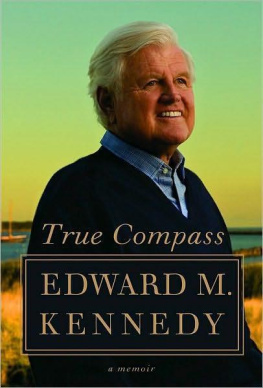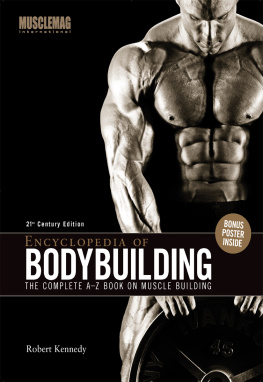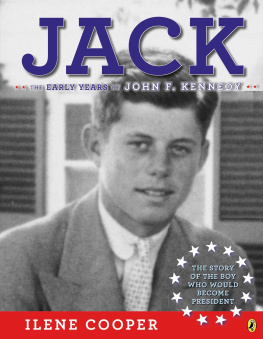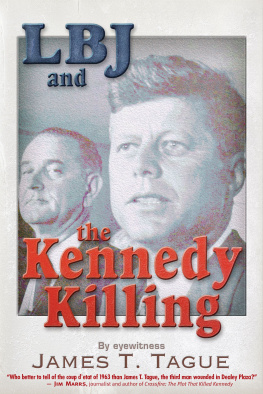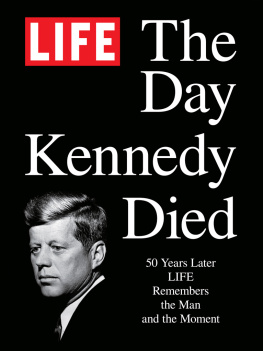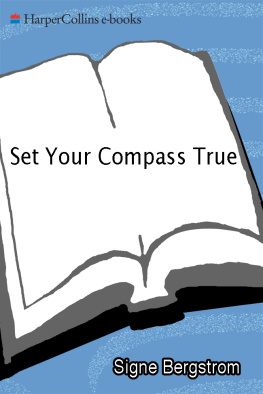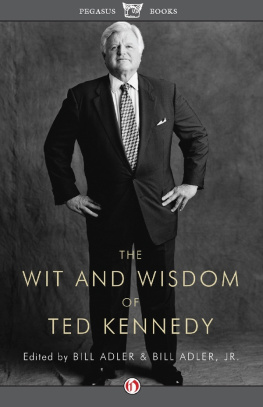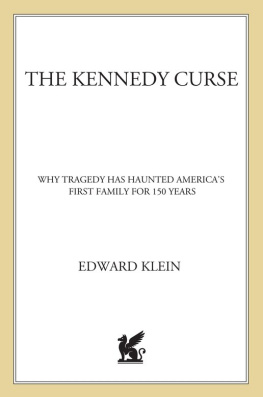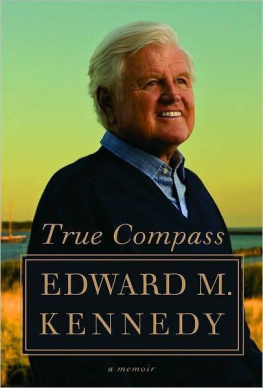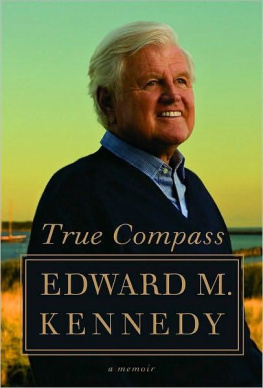
Copyright (c) 2009 by Edward M. Kennedy
All rights reserved. Except as permitted under the U.S. Copyright Act of 1976, no part of this publication may be reproduced, distributed, or transmitted in any form or by any means, or stored in a database or retrieval system, without the prior written permission of the publisher.
Twelve
Hachette Book Group
237 Park Avenue
New York, NY 10017
Visit our website at www.HachetteBookGroup.com
www.twitter.com/grandcentralpub
Twelve is an imprint of Grand Central Publishing.
The Twelve name and logo are trademarks of Hachette Book Group, Inc.
First eBook Edition: October 2009
ISBN: 978-0-446-56421-2
For Vicki, my true compass on this voyage.
"My bounty is as boundless as the sea,
My love as deep... for both are infinite."
--William Shakespeare I lay on the bowsprit, facing astern, with the water foaming into spume under me, the masts with every sail white in the moonlight, towering high above me. I became drunk with the beauty and singing rhythm of it, and for a moment I lost myself--actually lost my life. I was set free! I dissolved in the sea, became white sails and flying spray, became beauty and rhythm, became moonlight and the ship and the high dim-starred sky! I belonged, without past or future, within peace and unity and a wild joy, within something greater than my own life, or the life of Man, to Life itself! To God, if you want to put it that way. --Eugene O'Neill,
Long Day's Journey into NightContents
2008
It was on the sunny spring day of Tuesday, May 20, 2008, that I emerged from a medicated drowsiness in a Boston hospital bed and looked up into the face of a doctor who explained to me in a somber way that I was about to die, and that I had best begin getting my affairs in order and preparing my friends and family for the end.
As I lay in that hospital bed, my friends and neighbors on Cape Cod were just then getting their boats ready for the summer cruises and races. I intended to be among them, as usual. The Boston Red Sox were a good bet to defend their world championship. There was a presidential primary campaign in progress. My Senate colleagues were pushing forward on our legislative agenda. I had work to do.
No. As much as I respect the medical profession, my demise did not fit into my plans.
I was hardly "in denial" that I faced a grave and shocking threat to my life. The first symptoms of what would prove to be a malignant brain tumor had struck me three days earlier. They'd descended on me as I padded toward the kitchen of the Hyannis Port house that has been the center of my life and happiness for most of my seventy-six years. I was intent on nothing more than taking Sunny and Splash, my much-loved Portuguese water dogs, for their morning walk. My wife, Vicki, and I had just been chatting and having our morning coffee in the sunroom.
Life seemed especially good at that moment. The sixteen years of my marriage to Vicki had been good ones. Her acute understanding and love of me had made her my indispensable partner in my life. We shared countless joyful hours aboard my antique wooden schooner Mya, including nights of sailing along the coast, guided by the stars. Vicki had given me such a sense of stability and tranquillity that I had almost begun to think of life in those terms--stable and tranquil. But never boring. Certainly not with this funny, passionate, fiercely loyal, and loving woman.
Vicki and I had enjoyed an especially exhilarating winter and early spring. On January 27, thrilled and inspired by Barack Obama and the hope he embodied, I took the podium at American University in Washington to endorse his quest for the presidency. The best hopes of the past and present converged around me. My niece Caroline Kennedy stood at my back, alongside my own son Patrick and the candidate himself. The crowd roared its approval for my message. And I felt myself lifted--with a renewed optimism for my country, and by the unexpected notes of an old bugle, calling me once again to the campaign trail. Other years, other hustings, other adventures swept out of the past. "It is time again for a new generation of leadership," I declared to the cheering crowd in front of us, as another voice echoed down the corridors of my memory: Let the word go forth from this time and place, to friend and foe alike, that the torch has been passed to a new generation of Americans...
I felt joyous and exuberant through the inevitable exhaustion of the Democratic primary campaign, as I had felt in Wyoming and West Virginia in 1960 for Jack, and in Indiana and California in 1968 for Bobby. "No one said we couldn't have a little fun!" I shouted to a Latino crowd in San Antonio before belting out "Ay Jalisco No Te Rajes" in my version of Spanish. I had so much fun that I sang it again in Laredo. By mid-May, Obama had won the crucial North Carolina primary and had taken the lead in committed delegates. Some commentators were declaring the race already over. I certainly intended to keep on campaigning for him through the late spring and summer, but there was time to steal away for a few sails on Nantucket Sound.
On May 16 I took part in a ceremony at a favorite historic site of mine, the New Bedford Whaling National Historical Park, where I joined Massachusetts congressman Barney Frank and others to cut the ribbon at the Corson Maritime Learning Center. Barney and I had secured appropriations for repairs and other improvements to the building after it was damaged in a 1997 fire. I felt especially good that day, and threw away my prepared remarks to speak from my heart about my love for New Bedford, and the sea, and for the connection to our history that the park represented. Vicki told me afterward that Barbara Souliotis, our dear friend and the longtime chief of staff of my Boston office, who was sitting beside her, turned and whispered, "He's really on today!" I certainly felt "on." Change was in the air. And tomorrow, Vicki and I would enjoy our first sail of the year.
But that next morning, everything changed.
I had just meandered through the living room and had come within two steps of the grand piano that my mother, Rose, used to play for the family more than half a century ago as we gathered for dinner. Sometimes Jack, young and thin in his customary rumpled pullover, would stand at about the spot where I passed just then, and sing a solo to Mother's accompaniment.
Suddenly I felt disoriented. I moved toward the door leading to the porch, where several spacious chairs face the lovely prospect that I've known since childhood: a view to Nantucket Sound and the several masted boats at anchor in the nearby harbor. "Well," I told myself, "I'll just go outside and get some fresh air."
I didn't make it outside. Everything seemed hazy. I walked past the front door and into the dining room, where I lowered myself into a chair. That's the last thing I remember until I awoke in the hospital.
I learned later that I'd been discovered almost at once by Judy Campbell, our household assistant. Judy called out for Vicki, who was still in the sunroom, waiting for me to return. When Vicki saw me, she ran to my side and instructed Judy to call 911, and then my physician in Boston, Dr. Larry Ronan. As she waited for the local rescue team to arrive, Vicki wedged herself into the chair beside me and cradled my head. I was not aware of it then, but she held me tenderly, kissing my cheek and patting me and whispering, "You're going to be okay."
It took just four minutes for the first responder to arrive. He was a Hyannis police officer who told Vicki, "I was an army medic," to which my wife blurted, "Oh, thank God! Come in!" The paramedics arrived about half a minute later. No one knew how to diagnose me. They suspected a stroke. They prepared me for transportation--this took some time--and took me to the Cape Cod Hospital, where I was deeply sedated while they performed initial tests. Vicki was in constant contact with my doctors in Boston, who were in turn in contact with the Cape Cod team. The Boston doctors dispatched a medevac helicopter to transport me to Massachusetts General Hospital. In fairly short order, I was airlifted to the hospital in Boston. Vicki, meanwhile, continued to focus on the necessary tasks. Sitting in the car while I was being readied, before we even left home, she phoned as many members of our combined families as she could reach. "The second I called 911," she explained to me later, "I knew that this was going to be on the news, and I didn't want everyone close to us to find out that way." To every family member who asked Vicki, "Should we come?" she replied, "Yes. Yes. You've got to come." Then, as the chopper hurtled through the air on its half-hour flight to the hospital, Vicki hitched a ride there with the Hyannis fire chief, Harold Brunelle, who is a good friend of ours. She continued calling family members all the way to Boston.
Next page
